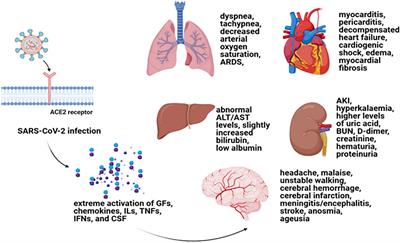EDITORIAL
Published on 14 Dec 2021
Editorial: A Compendium of Recent Research on Stem Cell-Based Therapy for Covid-19
doi 10.3389/fcell.2021.813384
- 1,204 views
14k
Total downloads
56k
Total views and downloads
EDITORIAL
Published on 14 Dec 2021
ORIGINAL RESEARCH
Published on 03 Nov 2021

REVIEW
Published on 25 Oct 2021

REVIEW
Published on 14 Sep 2021

REVIEW
Published on 06 Sep 2021

HYPOTHESIS AND THEORY
Published on 03 Sep 2021

REVIEW
Published on 14 Jun 2021

HYPOTHESIS AND THEORY
Published on 11 Jun 2021

ORIGINAL RESEARCH
Published on 25 Feb 2021

OPINION
Published on 05 Jan 2021

